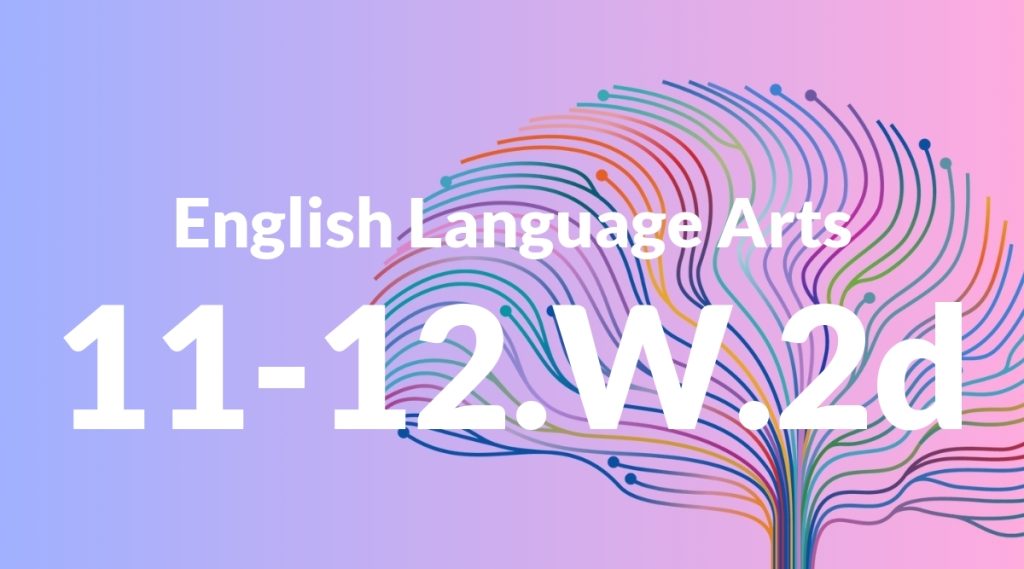Standard: 11-12.W.2d – Use precise language, domain-specific vocabulary, and techniques such as metaphor, simile, and analogy to manage the complexity of the topic.
Grade level: Grade 11-12
Subject: English Language Arts
Domain: Writing
Teacher Overview
This standard emphasizes the importance of using precise language and advanced writing techniques to manage complex topics. Mastering this skill is crucial for students as they prepare for college-level writing and professional communication. Students should be proficient in basic writing skills and familiar with figurative language before attempting this standard.
Mastering this standard will enable students to write more sophisticated and nuanced texts, effectively communicating complex ideas and arguments.
Common Misconception 1
Some students might think that simply using complex vocabulary makes their writing sophisticated. This is incorrect because effective writing requires clarity and precision, not just advanced words.
Intervention 1
Provide exercises where students rewrite sentences to improve clarity, focusing on the appropriate use of advanced vocabulary.
Common Misconception 2
Another misconception is that metaphors, similes, and analogies are interchangeable. They serve different purposes and create different effects in writing.
Intervention 2
Use a variety of texts to show how different authors use these techniques, and have students practice identifying and using them appropriately.
Prerequisite Knowledge
Students should have a solid understanding of basic writing skills, including grammar, sentence structure, and the use of figurative language. They should also be familiar with the concepts of metaphor, simile, and analogy.
Subsequent Knowledge
After mastering this standard, students will be able to write more sophisticated and nuanced texts. They will be able to effectively communicate complex ideas and arguments, and their writing will be more engaging and persuasive.
Instructional Activities
- Analyze excerpts from professional writing to identify the use of precise language and advanced techniques.
- Create a collaborative writing project where students must use domain-specific vocabulary and figurative language.
- Conduct peer reviews focusing on the clarity and effectiveness of language and techniques used.
- Develop a portfolio of writing samples demonstrating the use of metaphors, similes, and analogies.




